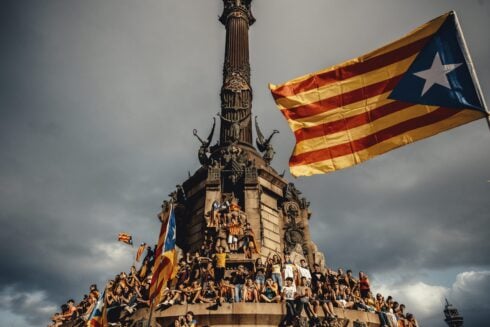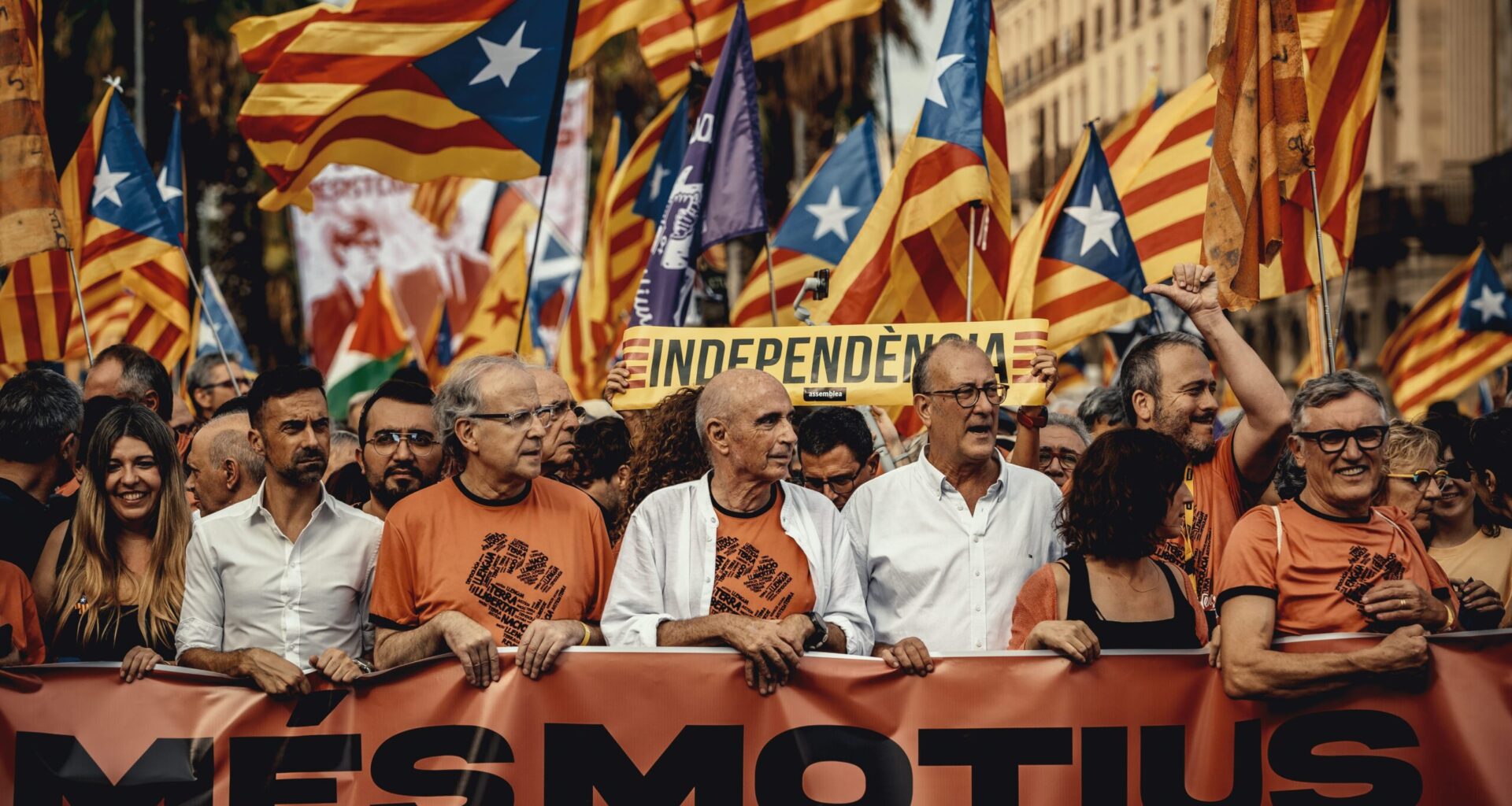THOUSANDS took to the streets across Catalunya on Thursday to celebrate the region’s national day, known as La Diada, but the estimated total turnout was the lowest on record as support for independence from Spain continues to plummet.
Around 28,000 pro-independence demonstrators marched in Barcelona, the region’s capital – despite torrential rain battering the city earlier in the day.
Separate smaller processions also took place in Girona and Tortosa, consisting of roughly 12,000 and 1,700 participants repsectively, according to local police.
But the total number of around 42,000 demonstrators is the lowest on record.
Last year, some 60,000 residents participated in nationalist demonstrations in Barcelona, alongside 6,500 in Girona, 3,000 in Lleida, 2,800 in Tarragona and 1,200 in Tortosa – although that total figure was also the lowest since 2012, when the Catalan National Assembly (ANC) started organising annual pro-independence rallies to coincide with the September 11 celebrations.
The festival coincides with the anniversary of the fall of Barcelona during the War of the Spanish Succession in 1714, and has come to symbolise the widely-held belief that Catalunya has been historically oppressed by the rest of Spain.
Between 2012 and 2019, La Diada celebrations were attended by over a million people each year amid growing calls for Catalan independence, culminating in the infamous 2017 referendum, which was deemed illegal, and a unilateral declaration of independence which led Mariano Rajoy, Spanish prime minister at the time, to dissolve the Catalan regional parliament.
Since the Covid-19 pandemic, the Catalan independence movement has been paralysed in crisis as voters grow disenchanted with a decade-long process which has provoked political and economic instability.
 Thursday’s turnout for Catalunya’s national day celebrations was the lowest on record in a blow to the independence movement. Credit: Cordon Press
Thursday’s turnout for Catalunya’s national day celebrations was the lowest on record in a blow to the independence movement. Credit: Cordon Press
The movement has also been quelled by the rise of the Socialists in Madrid, who have adopted a more tolerant approach towards the Catalan question than the hardline stance taken by the conservative Partido Popular (PP).
Last year, Salvador Illa, a key ally of prime minister Pedro Sanchez, was voted in as the region’s president, becoming the first pro-unity politician to take office in 14 years.
In a televised address celerbating La Diada, Illa defended the region’s financial model, warned of the dangers of climate change and condemned the ‘genocide perpetrated by the Israeli government’, bucking the trend set by his predecessors including current Junts per Catalunya leader Carles Puigdemont who used the annual speech to advocate for independence.
According to surveys carried out by the Centre for Opinion Studies, around 40% of Catalan residents would vote for independence from Spain in a new referendum.
But the levels of support for separatism have plummeted among the region’s youth, with only 27% of those aged 18-24 opting to back independence – with the majority favouring the current model of Catalunya as an autonomous community within Spain.
A decade ago, at the height of the independence push, 50% of youngsters wanted Catalunya to secede from Spain.
Click here to read more Spain News from The Olive Press.
